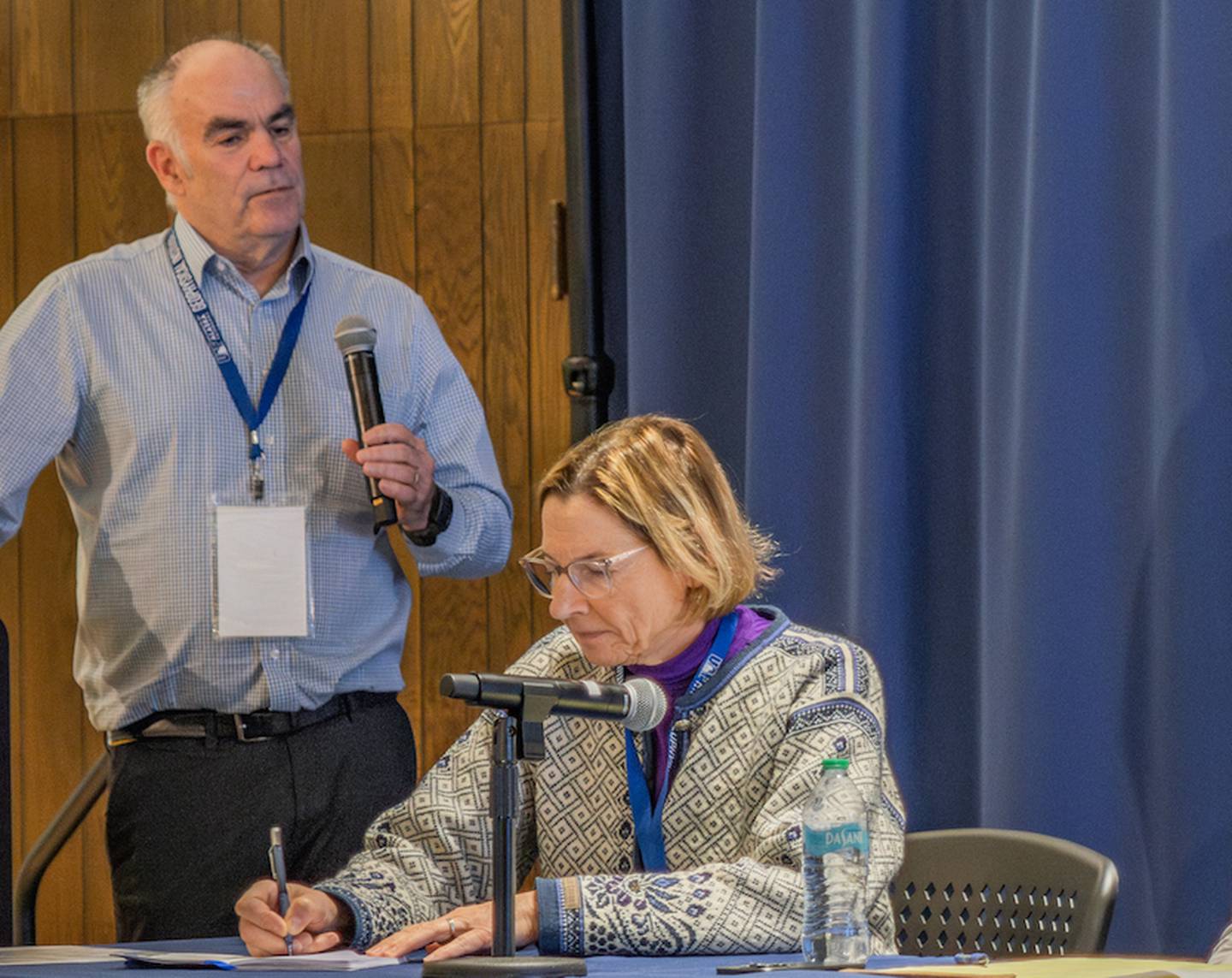
The internal combustion engine is not less than 100 years old. It is the same with the technologies we have developed to extract oil and gas from the ground.
It is hard to imagine life without our cars and airplanes and buildings heated by natural gas and oil. But it wasn’t that long ago when people didn’t have any of these things. Sometimes, breakthroughs happen, and smart people change the way we live.
The group met at the University of Alaska Fairbanks last week to discuss a new potential economy for Alaska and a clean source of energy for the world – geologic hydrogen.
We bump into hydrogen every second of our lives. It is a colorless, odorless, explosive gas that is the most abundant element in the universe, making up 75 percent of everything.
Including you. Hydrogen makes up 10% of your body weight when it combines with oxygen to make water, which makes up 65% of you.
But all those scientists didn’t gather in a Fairbanks ballroom to talk about how human hydrogen could power the Bush gold mine. They were interested in hydrogen that may be trapped underground by rock types that also trap gas and oil.
Mark Myers thinks that Alaska might be a good place to find this geological hydrogen. At a time when most people retire and have a resume that includes “Director, US Geological Survey,” one wonders why he cared enough to go to Fairbanks bring together geologists and policy makers.
Because, he said after the meeting, going to an energy source that only emits water vapor when burned would solve so many problems.
As a human being that blows past the stop sign of planet-warming carbon levels in the atmosphere. And the question of what could fuel Alaska’s economy after gas and oil.

Myers is a geologist who earned his doctorate at UAF and then worked in the state of Alaska as a petroleum geologist, where he traveled across the country and Canada looking at rocks.
President George W. Bush interrupted Myers’ field work when he named him the 14th director of the USGS in 2009. Myers and his wife, Alice, lived in Washington, DC, until the administration changed hands. they brought it back to Alaska. Here, then-Gov. Sarah Palin made Myers the coordinator of the national gas management project.
Myers is now a commissioner of the US Arctic Research Commission. Wearing that title, he gathered about 100 experts at UAF to see if geologic hydrogen could be the next big thing.
Although producers are now producing hydrogen as a fuel, this process emits a lot of carbon dioxide and is expensive to produce. That is what makes the natural resource interesting.
Drilling wells to fill pockets of hydrogen is not yet common in America. But the inhabitants of the city of Mali, which is an African country, found a source of hydrogen while drilling an old water well in 2011. Now it is being used, the hydrogen gas is generating electricity in the village.
People have also discovered natural deposits of hydrogen in Canada, Russia, Australia, Germany, New Zealand and other places. Alaska is a good place to look because it has similar geologic conditions, Myers said.
The downside of harvesting hydrogen gas molecules is that they are hard to come by, microbes like to eat them and they spread when they reach the surface. And, even if people can find their pockets underground, the deposits may not be in the right places.
The universe of hydrogen geology: If geologists can find pockets and figure out how to mine them, a hydrogen plant could power a nearby city that now has diesel generators spinning every second everyday. Or, a remote gold mine power plant can run on fuel that releases only water vapor into the air.
If the technology followed would allow Alaska to become an exporter of hydrogen, the state would have an industry that could one day replace oil and gas.
Everyone at the meeting agreed that they were all about Alaska. But a few of those geologists may already be scouring Alaska for signs of the fossil fuels that are part of who we are and the air we breathe and make up most of the universe. known.
“I’m hoping we start a fire,” Myers said.
#Geologic #hydrogen #answer #questions #economic #environmental